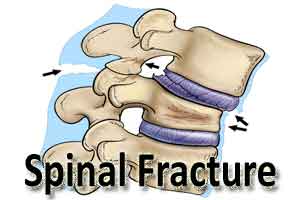- Home
- Editorial
- News
- Practice Guidelines
- Anesthesiology Guidelines
- Cancer Guidelines
- Cardiac Sciences Guidelines
- Critical Care Guidelines
- Dentistry Guidelines
- Dermatology Guidelines
- Diabetes and Endo Guidelines
- Diagnostics Guidelines
- ENT Guidelines
- Featured Practice Guidelines
- Gastroenterology Guidelines
- Geriatrics Guidelines
- Medicine Guidelines
- Nephrology Guidelines
- Neurosciences Guidelines
- Obs and Gynae Guidelines
- Ophthalmology Guidelines
- Orthopaedics Guidelines
- Paediatrics Guidelines
- Psychiatry Guidelines
- Pulmonology Guidelines
- Radiology Guidelines
- Surgery Guidelines
- Urology Guidelines
Vertebroplasty helps reduce acute pain among patients with spinal fractures: Lancet Study

Vertebroplasty is a safe and effective procedure to reduce acute pain and disability in patients who have experienced spinal fractures within a 6-week period, according to a new study published this week in The Lancet. In this procedure, a special cement is injected in the fractured vertebra to stabilize the fracture and relieve patients of pressure.
The study also found patients' hospital stays reduced by 5.5 days with vertebroplasty.
The study, coming out of Australia, "Safety and efficacy of vertebroplasty for acute painful osteoporotic fractures (VAPOUR): a multicenter, randomised, blinded, placebo-controlled trial," considered 120 patients. Sixty-one patients were randomly assigned to vertebroplasty and 59 to a placebo procedure. Only patients with severe pain of 7 or higher on a numeric rating scale (NRS) of 10 were enrolled.
After 14 days of treatment, 23 percent of patients in the vertebroplasty group reported an NRS pain of lower than 4. While 53 percent of patients in the placebo group still had moderate or severe pain six months after the procedure, patients in the vertebroplasty group reported lower pain at all time intervals after the procedure.
Almost 1.4 million patients in the world suffer fractures caused by osteoporosis. While many experience mild symptoms, a portion of them develop considerable pain and disability and require hospital admission.
Vertebroplasty could help them manage their pain and lead to reduced hospital stays, which would lead to overall health care savings. In addition, the study also found the procedure does not contribute to future fractures as was, at times, previously thought.
"These findings are important because, for the first time, vertebroplasty has been demonstrated to reduce pain more effectively than a sham intervention," says Dr. Joshua Hirsch, Past President of the Society of Neuro Interventional Surgery and author of the companion expert commentary in The Lancet. "Moreover, the trial suggests that conservative therapy including narcotics, bed rest and back braces, are themselves not risk-free. Indeed, in prior open label trials such as VERTOS 2, vertebroplasty has performed dramatically better than conservative therapy.

Disclaimer: This site is primarily intended for healthcare professionals. Any content/information on this website does not replace the advice of medical and/or health professionals and should not be construed as medical/diagnostic advice/endorsement or prescription. Use of this site is subject to our terms of use, privacy policy, advertisement policy. © 2020 Minerva Medical Treatment Pvt Ltd